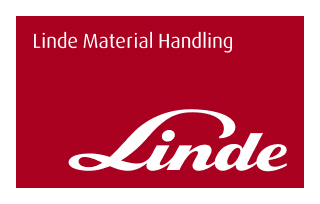In many industries: warehousing, logistics, construction, and manufacturing, forklifts are the unsung heroes. These powerful machines move goods, streamline operations, and boost productivity daily. But one key decision can significantly impact your bottom line: rent vs buy forklift.
Choosing between forklift renting and buying isn’t just a financial call; it’s a strategic move. The right choice will depend on your usage patterns, budget, and operational flexibility. Both options are viable, and at Linde Material Handling, you can explore both. This guide will help you weigh your options and make a decision that powers your business forward.
Forklift Renting: What You Need to Know
Forklift renting offers businesses the flexibility to access equipment without the long-term commitment of ownership. It’s a particularly attractive option for operations that fluctuate seasonally or run short-term projects.
Renting forklifts is increasingly popular in industries that prioritise operational agility, cash flow management, or short-term usage needs.
Advantages of Renting a Forklift
- Lower Upfront Costs: Renting is ideal for preserving capital, especially for startups or businesses scaling fast.
- No Maintenance Headaches: Most rental agreements include servicing, repairs, and even replacements, so you can stay focused on the job.
- Flexibility & Scalability: Need a different model next week? Renting allows you to scale up, down or change machines as your project demands evolve.
- Access to the Latest Technology: Rentals often feature newer models with better fuel efficiency, safety features, and tech integrations.
Potential Drawbacks of Renting
- Higher Long-Term Costs: Renting over many years can become more expensive than owning outright.
- Limited Customisation: Most rental fleets are standardised, so specialised attachments or modifications might not be available.
- Availability Constraints: During peak periods, demand may exceed supply. This could potentially delay your projects.
Buying a Forklift: When Ownership Makes Sense
Purchasing a forklift means you own the asset outright, giving you full control over its usage and modifications. This path is typically favoured by companies with predictable, long-term needs and daily equipment usage.
Advantages of Buying a Forklift
- Long-Term Cost Savings: If your forklift sees constant action, buying can be more economical in the long haul.
- Ownership Benefits: Full freedom to customise, schedule maintenance at your convenience, and operate without rental limitations.
- Asset Value: Your forklift becomes a company asset, with potential resale value down the line.
Disadvantages of Buying
- High Initial Investment: Buying requires significant capital or financing—something smaller businesses may not be ready for.
- Maintenance Responsibility: You're on the hook for servicing, repairs, and compliance.
- Depreciation: Like any vehicle, forklifts lose value over time and require ongoing upkeep.
Key Factors to Consider Before You Decide
Every business is different. Before committing, consider the following factors:
Frequency of Use
- High usage? Buying tends to be more cost-effective.
- Seasonal or occasional use? Renting could save you more.
Budget & Cash Flow
- Startups or cash-conscious businesses? Renting may be easier on the balance sheet.
-
Established companies? Might prefer to invest capital into long-term assets.
Project Duration or Business Uncertainty
-
Short-term or trial projects? Renting offers flexibility without long-term obligations.
-
Stable operations? Buying gives more control and long-term ROI.
Need for Specific Forklift Types or Attachments
- Renting lets you test out various models or configurations without commitment.
-
Buying allows full customisation to suit your precise operational needs.
Real-World Use Cases: Which Option Suits Different Business Types?
- Seasonal Warehouse Operations — Renting: A retail distribution centre brings in extra forklifts during the Christmas rush, ensuring smooth fulfilment without year-round expenses.
-
Manufacturing Plant with Daily Use — Buying: An automotive parts factory runs three shifts a day, five days a week. Buying forklifts delivers the most value over time.
- Growing Logistics Company — Hybrid Approach: A logistics firm owns a core fleet but supplements with rentals during peak shipping seasons for maximum efficiency.
Rent or Buy a Forklift from Linde Material Handling
No matter your business size or industry, Linde Material Handling offers a tailored solution for every need. Whether you're looking for flexibility or long-term reliability, Linde’s wide selection and expert support ensure you’re always moving in the right direction.
🔗 Explore our rental fleet
🔗 Browse forklifts for sale
🔧 Full servicing and support packages available
Let our team help you find the perfect match—contact us today for a customised quote and expert guidance.
Final Thoughts: Making the Smart Choice for Your Operations
There’s no “one-size-fits-all” answer in the rent vs buy forklift debate. The best choice aligns with your business goals, operational needs, and financial position.
Before making your move, you must:
- Review how often and for what purpose you need a forklift.
- Analyse your financial capacity and ROI goals.
- Speak with a Linde expert to get tailored recommendations.
At Linde Material Handling, we’re here to lift your business—whichever route you choose.
Check out our rental trucks at the link below.
RENTAL FORKLIFTS

